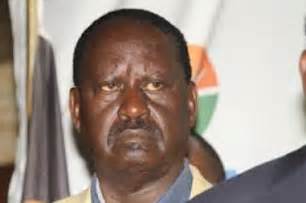
Petroleum Industry
Solving fuel crisis: Nigeria legislature Passes Petroleum Bill
Nigeria’s House of Representative today passed the Petroleum Industry Governance Bill. Same Bill was passed by the Nigerian Senate in May 2017.
The Bill is now ready to be sent to the President for assent, after which it becomes a law.
President of Nigeria’s Senate, Bukola Saraki in a tweet this afternoon urged President Muhammadu Buhari to assent to the Bill, saying when it becomes law, it will alleviate multitude of sufferings in Nigeria that are related to the energy sector.
“In May 2017, @NGRSenate took the first step in passing the #PIGB into law. Yesterday, @HouseNGR took it another step further. Once the #PIGB becomes law, it will help alleviate those issues that lead to #FuelScarcity, by tackling the the corruption, diversion and smuggling”, Saraki @bukolasaraki tweeted.
Speaker of the House of Representaives also called the passage a landmark achivement.
The Petroleum Industry Bill, Long Title: An Act to establish the legal and regulatory framework, institutions and regulatory authorities for the Nigerian petroleum industry, to establish guidelines for the operation of the upstream and downstream sectors, and for purposes connected with the same, has been in the Nigeria’s parliament for long as has gone through several amendments. It is now called Petroleum Industry Governance Bill (PIGB)
According to the Nigerian National Petroleum Corporation, here are fundamental objectives of the Bill
1.Vesting of petroleum and natural gas
Property and sovereign ownership of petroleum within Nigeria, its territorial waters, the continental shelf, the Exclusive Economic Zone and the extended continental shelf shall vest in the sovereign state of Nigeria for and on behalf of the people of Nigeria.
2. Allocation of Acreage
Any company qualified under terms and conditions prescribed from time to time by the relevant Institutions shall be free to apply for the grant or award of a license, lease or contract, as the case may be, for the exploration and production of petroleum. Management of Petroleum Resources
(1) The management and allocation of petroleum resources and their derivatives in Nigeria shall be conducted strictly in accordance with the principles of good governance, transparency and sustainable development of Nigeria. (2) Subject to subsection (1) of this section, the main criterion for the management of petroleum resources shall be the total benefits that will accrue to the sovereign state of Nigeria.
3. Government Participation
(1) The Minister shall grant licences and leases on the recommendation of the Directors General of the Institutions and in accordance with guidelines, impose special terms and conditions that are not inconsistent with the provisions of this Act on any licence or lease to which this Act applies, including terms and conditions as to: (a) participation by the Federal Government in the venture to which the licence or lease relates, on terms to be negotiated between the Minister and the applicant for the licence or lease; and (b) exploitation of any natural gas discovered. (2) Subsection (1) of this section shall not apply to any indigenous company operating in the upstream sector whose aggregate production is less than or equal to fifty thousand barrels per day of crude oil or natural gas equivalent.
In achieving their functions and objectives under this Act, the Institutions and the National Oil Company shall be guided by principles of the Nigerian Extractive Industries Transparency Initiative Act of 2007.
4. Environment and Air Quality Emissions
(1) The Federal Government shall, to the extent practicable, honour international environmental obligations and shall promote energy efficiency, the provision of reliable energy, and a taxation policy that encourages fuel efficiency by producers and consumers. (2) In accordance with the provisions of subsection (1) of this section, the Federal Government shall introduce and enforce integrated health, safety and environmental quality management systems with specific quality, effluent and emission targets for oil and gas related pollutants, without regard for fuel type such as gas, liquid or solid, in order to ensure compliance with international standards.
5. Community Development
The Federal Government shall, in co-operation with the state and local governments and communities, encourage and ensure the peace and development of the petroleum producing areas of the Federation through the implementation of specific projects aimed at ameliorating the negative impacts of petroleum activities.
6. Nigerian Content
(1) The Federal Government shall at all times promote the involvement of indigenous companies and manpower and the use of locally produced goods and services in all areas of the petroleum industry in accordance with existing laws and policies. (2) Where any contract for work or services is considered to be within the capabilities of Nigerian companies, in accordance with any law relating to Nigerian content, the tender list shall be restricted to Nigerian companies. (3) All companies involved in any area of the upstream or downstream petroleum industry shall, as a condition of their licence, lease, contract or permit, as the case may be, comply with the terms and conditions of any law relating to the Nigerian content law in force at the time. (4) Failure to comply with the terms of any local content law as determined by the Inspectorate shall be a ground for revocation of a licence, lease, contract or permit that may have been previously granted to the company that failed to comply with the said terms.




Recent Comments